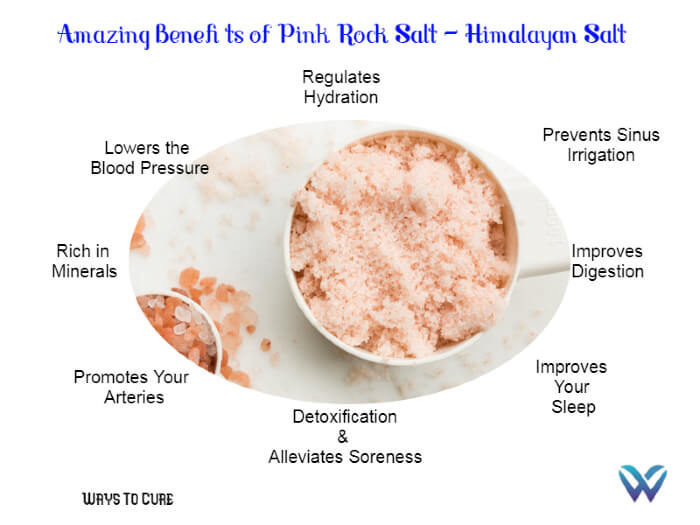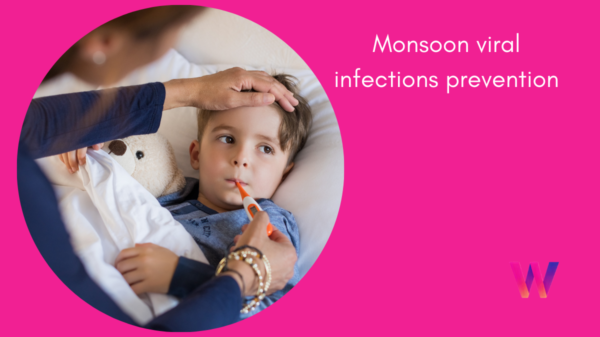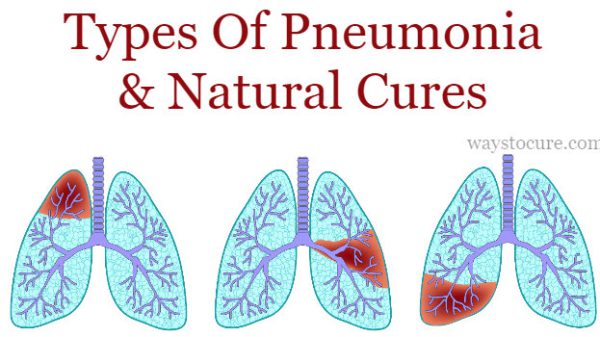Caffeine is a double-edged sword when it comes to its effects on mental health[1]. On one hand, it can provide a much-needed boost of energy, increased alertness, and improved cognitive function. But on the other hand, excessive caffeine consumption can lead to increased anxiety[2], disrupted sleep patterns, and even caffeine overdose symptoms like heart palpitations and hallucinations. In this blog, we will delve deeper into the positive and negative effects of caffeine on depression and mental health. We will explore the benefits of moderate caffeine intake as well as the risks associated with excessive consumption. Additionally, we will discuss risk factors for caffeine overdose, management strategies in case of overdose, prevention techniques, and provide real-life case studies to illustrate the potential dangers. So grab your favorite caffeinated beverage and join us as we uncover the complex relationship between caffeine and mental health.
Table of Contents
Positive effects of caffeine
Caffeine, a central nervous system stimulant, has significant positive effects on both the mind and body. By stimulating the central nervous system, caffeine enhances alertness and focus, enabling individuals to be more attentive and engaged in their activities. Moreover, this cognitive boost contributes to improved concentration and mental function. By increasing dopamine production in the brain, caffeine also enhances mood and motivation, leading to feelings of happiness and pleasure. This uplifting effect provides individuals with the energy and drive they need to tackle their tasks and goals. In addition to mental benefits, caffeine improves physical performance by reducing fatigue and enhancing endurance, enabling individuals to push their limits during exercise or sports activities. Furthermore, moderate caffeine consumption has been linked to a reduced risk of conditions like Parkinson’s disease, Alzheimer’s disease, and liver disease. Lastly, caffeine can temporarily increase metabolism, potentially aiding weight loss efforts by burning more calories. Overall, caffeine consumption, when moderate, offers various positive effects, including increased alertness, enhanced cognitive function, improved physical performance, reduced disease risk, and temporary metabolism boost.
Increased alertness and focus
Caffeine intake and its impact on alertness and focus
Caffeine, acting as a central nervous system stimulant, has the remarkable ability to heighten alertness and enhance focus and concentration levels. By activating specific brain regions responsible for wakefulness and attention, caffeine combats drowsiness and promotes a state of heightened awareness.
Additionally, caffeine’s impact on cognitive function and mood elevation makes it an effective tool for individuals grappling with mild depression or lethargy. Through the release of neurotransmitters like dopamine and serotonin, caffeine triggers feelings of pleasure and well-being. Consequently, consuming moderate quantities of caffeine can boost mental clarity and foster increased motivation.
Nonetheless, it is vital to recognize that excessive caffeine consumption can lead to adverse effects. Symptoms like anxiety, irritability, and disrupted sleep patterns may exacerbate depressive symptoms for certain individuals. Therefore, it is crucial to exercise moderation when consuming caffeine and be cognizant of personal tolerance thresholds.
REFER A FRIEND GIVE $15, GET $15
Enhanced cognitive function
Caffeine’s influence on cognitive function is widely recognized and supported by extensive research. The consumption of caffeine has been proven to enhance attention, alertness, and reaction time, making it an effective tool for improving cognitive performance. In addition, caffeine provides a mental boost, enabling individuals to tackle tasks with increased energy and focus. Its positive influence on memory and learning capabilities further contributes to its reputation as a cognitive enhancer. Expanding beyond its cognitive benefits, caffeine has also been associated with potential antidepressant effects by facilitating the production of essential neurotransmitters like dopamine and serotonin. However, it is vital to exercise caution while consuming caffeine, as excessive intake may result in adverse outcomes such as heightened anxiety and disrupted sleep patterns. Therefore, practicing moderation and being aware of the potential impact on cognitive function is essential when incorporating caffeine into one’s routine.
Improved physical performance:
Caffeine’s benefits go beyond simply increasing alertness and focus. It has proven to have positive effects on physical performance as well. By stimulating the central nervous system, caffeine boosts energy levels and reduces feelings of fatigue, allowing individuals to engage in physical activity for longer durations. Whether it’s running, weightlifting, or any other form of exercise, caffeine has been found to enhance endurance and strength. Furthermore, caffeine has the potential to heighten metabolism, aiding in weight loss and improving overall body composition. It is worth noting, however, that the effects of caffeine can vary among individuals, and excessive consumption can have negative consequences. Thus, it is advisable to consume caffeine in moderation, being cognizant of its potential impact.
Negative effects of caffeine:
Caffeine, when taken in excessive amounts, can have several negative effects on the body. One of the major concerns associated with caffeine overdose is its potential to increase anxiety and worsen symptoms of depression. This stimulant can disrupt sleep patterns, leading to fatigue and exacerbating depressive symptoms. Moreover, when consumed in large quantities, caffeine can lead to dependency and withdrawal symptoms, adversely affecting one’s mood. It is important to note that caffeine can also interfere with certain medications used to treat depression, thereby reducing their effectiveness. Excessive consumption of caffeinated beverages may give rise to feelings of restlessness and irritability, further impacting mental well-being.
Increased anxiety and restlessness
Consuming excessive amounts of caffeine can lead to increased anxiety and restlessness. As a central nervous system stimulant, caffeine stimulates the body and mind, causing feelings of jitteriness and unease. Individuals with pre-existing anxiety disorders or heightened sensitivity to caffeine may experience a worsening of their symptoms when consuming large quantities. Furthermore, excessive caffeine intake can disrupt sleep patterns, leading to increased fatigue and further exacerbating symptoms of depression. It is important to closely monitor caffeine intake and consider reducing consumption if experiencing any negative effects on mental health.
Disrupted sleep patterns
Excessive caffeine consumption can lead to disrupted sleep patterns, which can have detrimental effects on mental health. When individuals consume caffeine, especially in large amounts or close to bedtime, it interferes with their natural sleep-wake cycle. The stimulating effects of caffeine make it difficult to fall asleep or stay asleep, resulting in disrupted sleep patterns. This disruption can have negative consequences on mental health, increasing the risk of depression. Furthermore, caffeine can cause restlessness, anxiety, and irritability, all of which can contribute to feelings of depression. It is crucial to be mindful of caffeine intake and consider reducing or eliminating it if experiencing symptoms of depression or sleep disturbances. By prioritizing good sleep hygiene and minimizing caffeine consumption, individuals can promote better mental well-being.
Dependency and withdrawal symptoms:
Dependency and withdrawal symptoms associated with excessive caffeine consumption include the development of tolerance and the experience of withdrawal symptoms upon cessation. Regular consumption of caffeine can lead to the body developing a tolerance, requiring higher doses to achieve the desired effects. When caffeine intake is abruptly stopped or significantly reduced, individuals may experience withdrawal symptoms such as headaches, fatigue, irritability, and difficulty concentrating. The severity of these withdrawal symptoms can vary depending on an individual’s level of caffeine consumption and their unique physiology. These symptoms typically peak within 24-48 hours after cessation and can last for a week or more. It is important to gradually reduce caffeine intake to minimize the potential for withdrawal symptoms.
Caffeine overdose symptoms:
Caffeine overdose symptoms can manifest in various ways and should not be taken lightly. Excessive consumption of caffeine, whether through energy drinks, high-dose supplements, or other sources, can have detrimental effects on the body. One of the tell-tale signs of caffeine overdose is an increased heart rate and the presence of palpitations. This can be alarming and may have serious implications for individuals with underlying cardiovascular conditions. Restlessness and anxiety are also common symptoms observed in cases of caffeine overdose. As a potent central nervous system stimulant, caffeine can heighten feelings of agitation and unease. Moreover, caffeine’s stimulant properties can disrupt sleep patterns, leading to insomnia and difficulty sleeping. This lack of quality sleep can exacerbate the negative effects of caffeine on mental health, potentially contributing to anxiety and depression. Additionally, headaches and migraines are frequently reported symptoms associated with caffeine overdose. These can be debilitating and negatively impact individuals’ quality of life. It is important to note that caffeine overdose may also result in digestive issues, such as stomach pain or diarrhea, which can further contribute to discomfort and distress. In severe cases, caffeine overdose can manifest in symptoms like nausea and vomiting, heart palpitations, seizures, hallucinations, and even loss of consciousness. These symptoms indicate a critical situation that requires immediate medical attention.
Nausea and vomiting
Excessive caffeine consumption can lead to the unpleasant symptoms of nausea and vomiting. When the body is overwhelmed by high doses of caffeine, it can cause an upset stomach and feelings of sickness. Nausea is the body’s natural response to eliminate excess caffeine or any substance it deems harmful. Meanwhile, vomiting serves as a forceful way for the body to expel the ingested caffeine. It is crucial to be mindful of your caffeine intake and listen to your body’s cues to avoid encountering these uncomfortable symptoms. If you consistently experience severe nausea and vomiting after consuming caffeine, it may indicate caffeine overdose, and it is advisable to seek immediate medical attention.
Heart palpitations:
Heart palpitations may be experienced as a result of consuming excessive amounts of caffeine, leading to rapid or irregular heartbeats that can feel like fluttering or pounding in the chest. These palpitations may be accompanied by additional symptoms like dizziness, lightheadedness, and shortness of breath. It is worth noting that occasional heart palpitations may not necessarily be cause for concern, but it is essential to seek evaluation from a healthcare professional if they occur frequently or become severe. To prevent heart palpitations caused by caffeine, it is advisable to consume caffeine in moderate amounts and be mindful of one’s individual tolerance levels.
Seizures:
Excessive consumption of caffeine can have serious consequences, one of which is the potential for seizures. Seizures are sudden and uncontrollable movements or convulsions that occur due to the stimulant effect of caffeine on the central nervous system. When caffeine is ingested in toxic levels, it can trigger abnormal electrical activity in the brain, leading to seizures. These seizures can vary in severity, ranging from mild muscle jerking to full-body convulsions. If seizures occur after consuming caffeine, it is crucial to seek medical help promptly, especially if the seizure lasts longer than a few minutes or if it is the first time experiencing a seizure. By being mindful of your caffeine intake and avoiding excessive amounts, you can reduce the risk of caffeine-induced seizures.
Hallucinations:
Hallucinations can occur as a potential symptom of caffeine overdose. Consuming excessive amounts of caffeine can lead to the experience of seeing or hearing things that are not actually there. These hallucinations can range in intensity and may be accompanied by other symptoms like rapid heartbeat, restlessness, anxiety, and insomnia. Monitoring your caffeine intake and being aware of its potential negative effects on your mental health is crucial. Should you encounter hallucinations or other severe symptoms after consuming caffeine, immediate medical attention is advisable.
Loss of consciousness:
Loss of consciousness can be a potential symptom of caffeine overdose, which occurs when an individual consumes a dangerous amount of caffeine. It is crucial to seek immediate medical attention if you or someone you know experiences loss of consciousness after consuming caffeine, as it could indicate a serious medical emergency. Remember, consuming excessive amounts of caffeine can have detrimental effects on your health. From seizures to hallucinations, caffeine overdose can lead to various severe symptoms. Therefore, it’s essential to be mindful of your caffeine intake and recognize any signs of overdose. Seek medical help promptly if you suspect caffeine overdose.
Risk factors for caffeine overdose
Consuming excessive amounts of caffeine can lead to symptoms of caffeine overdose. One potential symptom of caffeine overdose is hallucinations, where individuals may see or hear things that are not actually there. Other symptoms of caffeine overdose may include rapid heartbeat, restlessness, anxiety, and insomnia. Loss of consciousness is also a possible symptom and should be taken seriously. It’s important to be mindful of your caffeine intake and monitor any potential negative effects it may have on your mental health. Risk factors for caffeine overdose include high caffeine consumption, individual sensitivity to caffeine, and the concurrent use of other stimulants. By being aware of these risk factors, individuals can take steps to manage their caffeine intake and reduce the risk of caffeine overdose.
High caffeine consumptionL
Excessive consumption of caffeine can significantly increase the risk of caffeine overdose. When individuals consume unusually high amounts of caffeine, whether it be from energy drinks, caffeine pills, or other sources, the negative effects can be quite detrimental. These effects often include restlessness, nervousness, a rapid heartbeat, and difficulty sleeping. It is absolutely crucial to be extremely mindful of your caffeine intake and closely monitor it. For most healthy adults, it is generally recommended to limit caffeine consumption to 400mg per day. However, it is important to note that certain individuals with specific health conditions, such as anxiety disorders or heart problems, may find themselves more susceptible to the adverse effects of caffeine. If you happen to be experiencing any symptoms associated with caffeine overdose or if you are concerned about how caffeine might be affecting your overall mental well-being, it is always best to seek the guidance of a qualified healthcare professional.
Individual sensitivity to caffeine:
Individual tolerance and sensitivity to caffeine can vary greatly from person to person. While some individuals may be able to consume large amounts of caffeine without experiencing negative side effects, others may be more susceptible to its effects. It is crucial for individuals to pay attention to their own body’s response to caffeine and adjust their consumption accordingly. People with certain medical conditions, such as anxiety disorders or heart conditions, may be more prone to negative effects such as increased anxiety or insomnia. Therefore, it is important to be mindful of your own sensitivity to caffeine and consume it in moderation. By listening to your body and finding the right balance, you can avoid the potential negative effects of caffeine overdose and optimize your overall well-being.
Concurrent use of other stimulants:
Combining caffeine with other stimulants, such as energy drinks or certain medications, can significantly increase the risk of caffeine overdose. The concurrent use of caffeine with these substances can have negative effects on mental health and even exacerbate symptoms of depression. It is crucial to be mindful of potential interactions between caffeine and other substances, as they can impact the body in various ways. Some individuals may be more sensitive to the effects of caffeine, experiencing heightened anxiety or intensified depression symptoms even with small amounts. If you have a history of mental health concerns or are currently experiencing depressive symptoms, it is advisable to limit or avoid caffeine consumption and seek guidance from a healthcare professional.
Management of caffeine overdose:
The management of caffeine overdose involves various steps to ensure the well-being of individuals. Recognizing the symptoms of caffeine overdose, such as restlessness, rapid heartbeat, and trouble sleeping, is crucial. Seeking medical attention is advisable if the symptoms are severe or if there is uncertainty regarding caffeine intake. To prevent future overdose incidents, it is recommended to reduce or eliminate caffeine consumption and find alternative ways to boost energy and improve mood without relying solely on caffeine. Practicing moderation is key to maintaining a healthy balance.
Medical intervention:
Medical intervention is crucial in cases of caffeine overdose, which occurs when an individual consumes toxic levels of caffeine. Symptoms of caffeine overdose include restlessness, rapid heartbeat, and trouble sleeping. Seeking medical attention is recommended if severe symptoms are experienced or if there is uncertainty regarding caffeine intake. The management of caffeine overdose involves reducing or eliminating caffeine consumption to avoid future incidents. In severe cases, medical professionals may administer activated charcoal to absorb excess caffeine in the body and provide intravenous fluids to prevent dehydration and restore electrolyte balance. Medications such as beta-blockers or benzodiazepines may be used to manage symptoms like rapid heartbeat or anxiety. Hospitalization and monitoring may be necessary until the individual’s condition stabilizes.
Supportive care:
Supportive care is crucial in managing caffeine overdose and its symptoms. When encountering signs like restlessness, rapid heartbeat, and sleep disturbances, it is vital to identify them and seek immediate medical attention in case of severity or uncertainty about caffeine consumption. To prevent future overdose incidents, reducing or eliminating caffeine from one’s diet is key, and exploring energy and mood improvement alternatives without relying on caffeine is recommended. Practicing moderation and being mindful of caffeine intake can aid in averting potential health problems. In severe caffeine overdose cases, medical intervention becomes necessary. Medical professionals may administer activated charcoal to absorb excess caffeine and provide intravenous fluids to restore electrolyte balance and prevent dehydration. Medications like beta-blockers or benzodiazepines are utilized to manage symptoms, and hospitalization may be required for close monitoring and additional treatments.
Monitoring and prevention of complications:
To ensure the proper monitoring and prevention of complications associated with caffeine overdose, it is vital to be attentive to the symptoms and signs of caffeine toxicity. Restlessness, rapid heart rate, and insomnia can serve as indicators of excessive caffeine consumption. By monitoring the intake of caffeine and restricting its consumption, individuals can minimize the likelihood of potential complications. It is essential to bear in mind that while caffeine can have favorable effects in moderate amounts, an excessive intake can worsen symptoms of depression or anxiety, particularly in those with existing mental health conditions. Seeking medical advice and consultation with healthcare professionals is imperative for individuals who experience symptoms of caffeine overdose or harbor concerns regarding its interaction with mental health conditions.
Prevention of caffeine overdose:
To prevent the negative consequences of caffeine overdose, it is crucial to take proactive measures. It is essential to have a comprehensive understanding of the recommended daily intake of caffeine and adhere to it. Monitoring caffeine consumption from various sources, including coffee, tea, energy drinks, and chocolate, is vital in preventing excess intake. Familiarizing oneself with the symptoms of caffeine overdose, such as increased heart rate, agitation, and anxiety, can aid in early recognition of potential issues. For individuals with a history of anxiety or sleep disorders, it may be prudent to limit or completely avoid caffeine. Exploring alternative methods to enhance energy and mood, such as engaging in regular exercise or ensuring sufficient sleep, can help reduce reliance on caffeine. Seeking guidance from a healthcare professional regarding the interplay between caffeine and mental health is always a proactive step towards maintaining overall well-being.
Awareness of caffeine content in beverages and foods:
Being aware of the caffeine content in beverages and foods is crucial to prevent consuming excessive amounts of this stimulant. It is important to recognize that caffeine overdose can have negative effects such as increased anxiety, restlessness, and disrupted sleep patterns. By understanding the caffeine content in different sources like coffee, tea, energy drinks, chocolate, and certain medications, individuals can regulate their intake more effectively.
It is crucial to read labels and understand serving sizes to determine the amount of caffeine in each beverage or food item. By being mindful of caffeine content, individuals can make informed decisions about their consumption, taking into account their own tolerance and sensitivity. Moderation is key when it comes to caffeine intake. While caffeine can have positive effects on alertness and cognitive function in moderate amounts, excessive consumption can lead to adverse effects. It is essential to monitor caffeine intake and limit consumption to avoid potential complications such as caffeine overdose, which can result in symptoms like nausea, heart palpitations, seizures, hallucinations, and even loss of consciousness.
Limiting caffeine consumption:
To avoid the negative effects associated with caffeine overdose, it is crucial to limit your caffeine consumption. Consuming excessive amounts of caffeine can lead to anxiety, irritability, and insomnia, which can significantly impact your mental health. To prevent these negative effects, it is important to monitor and regulate your caffeine intake. The recommended daily limit for caffeine intake is about 400 milligrams for most adults. Be mindful of the caffeine content in beverages and foods, including coffee, tea, energy drinks, and chocolate. Gradually reducing your caffeine intake or switching to decaffeinated options can help prevent dependency and minimize the risk of negative effects on mental health. If you have a history of anxiety or sleep disorders, it is advisable to limit or avoid caffeine altogether. Additionally, considering alternative methods for boosting energy and mood, such as exercise or ensuring you get enough sleep, can also help reduce the need for caffeine consumption.
Seeking medical advice for pre-existing conditions:
Consulting with healthcare professionals is essential for individuals with pre-existing conditions when it comes to consuming caffeine. While moderate intake of caffeine can improve mood and increase alertness, excessive consumption can exacerbate symptoms of anxiety and sleep disorders. Seeking medical advice can help individuals with pre-existing conditions determine safe levels of caffeine intake and effectively manage any potential negative effects on their mental health. Healthcare professionals can provide personalized guidance based on individual needs and offer strategies to minimize the risk of caffeine-related complications. By working with healthcare professionals, individuals can make informed decisions about caffeine consumption and prioritize their overall mental well-being.
Case studies of caffeine overdose:
There is growing concern regarding the effects of caffeine overdose, as evidenced by various case studies. These studies emphasize the potential dangers of consuming excessive amounts of caffeine, whether from energy drinks, supplements, or other sources. A notable case involved a college student who was admitted to the hospital after consuming an alarming quantity of energy drinks in a short span of time. The student experienced severe agitation, an elevated heart rate, and vomiting, ultimately requiring medical intervention. Similarly, an athlete experienced cardiac arrest as a result of consuming high levels of caffeine. These case studies highlight the serious consequences that can arise when caffeine consumption surpasses safe limits.
Case study 1: College student hospitalized after excessive energy drink consumption
A recent case study has brought attention to the dangers associated with excessive energy drink consumption and the risk of caffeine overdose. The incident involved a college student who consumed multiple energy drinks in a short span of time. As a result, the individual experienced symptoms such as a rapid heartbeat, anxiety, and tremors, ultimately requiring hospitalization. This case serves as a stark reminder of the potential consequences of consuming high levels of caffeine. Caffeine overdose can lead to serious health issues, including heart palpitations, high blood pressure, and even cardiac arrest. It is important to be vigilant about the caffeine content in beverages and to consume them in moderation to avoid negative effects on mental health. If you or someone you know is exhibiting symptoms of caffeine overdose, seeking immediate medical attention is crucial for appropriate management and intervention.
Case study 2: Athlete experiencing cardiac arrest due to high caffeine intake
In recent years, the consumption of caffeine, particularly through energy drinks and supplements, has become increasingly popular among athletes. This popularity has brought attention to the potential risks associated with excessive caffeine intake. In this case study, an athlete who consumed high amounts of caffeine experienced a severe health event – a cardiac arrest. This life-threatening event occurred due to an abnormal heart rhythm, triggered by the effects of caffeine on the cardiovascular system. It serves as a stark reminder of the importance of moderation when consuming caffeinated products.
While caffeine can provide benefits such as increased alertness and improved physical performance, exceeding safe limits can have devastating consequences. High doses of caffeine can lead to arrhythmias, increased blood pressure, and even seizures. These effects can be particularly dangerous for individuals with underlying heart conditions. Therefore, it is crucial for athletes and individuals in general to monitor their caffeine intake and be aware of recommended guidelines.
Cardiac arrhythmias, including ventricular fibrillation, have been reported in cases of caffeine overdose. Caffeine acts as a central nervous system stimulant and can disrupt the normal electrical activity of the heart. This can lead to irregular heart rhythms and, in severe cases, cardiac arrest. It is important to note that caffeine intoxication can also manifest with symptoms such as restlessness, irritability, and insomnia.
In conclusion, this case study reinforces the need for moderation and responsible caffeine consumption. While caffeine can provide temporary benefits, such as increased alertness and improved cognitive function, excessive intake can lead to serious health complications. It is important for individuals, particularly athletes, to be aware of the potential risks associated with caffeine overdose and to monitor their intake accordingly.
Conclusion:
Caffeine consumption should be approached with caution, especially for individuals with depression. While moderate intake can bring temporary mood improvement and increased alertness, excessive consumption can have detrimental effects on mental health. It is important to be mindful of the potential impact of caffeine on symptoms such as anxiety and insomnia. Monitoring caffeine intake and seeking professional advice can help individuals with depression strike a balance between enjoying the benefits of caffeine and avoiding its negative repercussions. By staying informed and making informed choices, individuals can manage their caffeine intake for optimal mental well-being.
References:
Caffeine consumption has been studied in relation to depression, with some research suggesting a potential lower risk of depression. However, it is essential to consume caffeine in moderation, as excessive intake can exacerbate symptoms of anxiety and sleep disturbances, commonly associated with depression. It is crucial for individuals experiencing depressive symptoms to consult healthcare professionals for accurate diagnosis and suitable treatment. Caffeine affects mental health differently in everyone, emphasizing the importance of understanding one’s own body and making informed decisions about caffeine consumption.
Caffeine can have both positive and negative effects on mental health. While it can increase alertness, focus, and cognitive function, excessive consumption can lead to increased anxiety, disrupted sleep patterns, and dependency. It’s important to be aware of the symptoms of caffeine overdose, such as nausea, heart palpitations, seizures, hallucinations, and loss of consciousness. Risk factors for caffeine overdose include high consumption, individual sensitivity to caffeine, and concurrent use of other stimulants.
If you or someone you know is experiencing caffeine overdose symptoms, it’s crucial to seek medical intervention and receive supportive care. Preventing caffeine overdose can be done by being aware of the caffeine content in beverages and foods, limiting consumption, and seeking medical advice for pre-existing conditions. To learn more about the positive and negative effects of caffeine on mental health and read case studies of caffeine overdose incidents, refer to our comprehensive blog. Stay informed and take care of your mental health.











